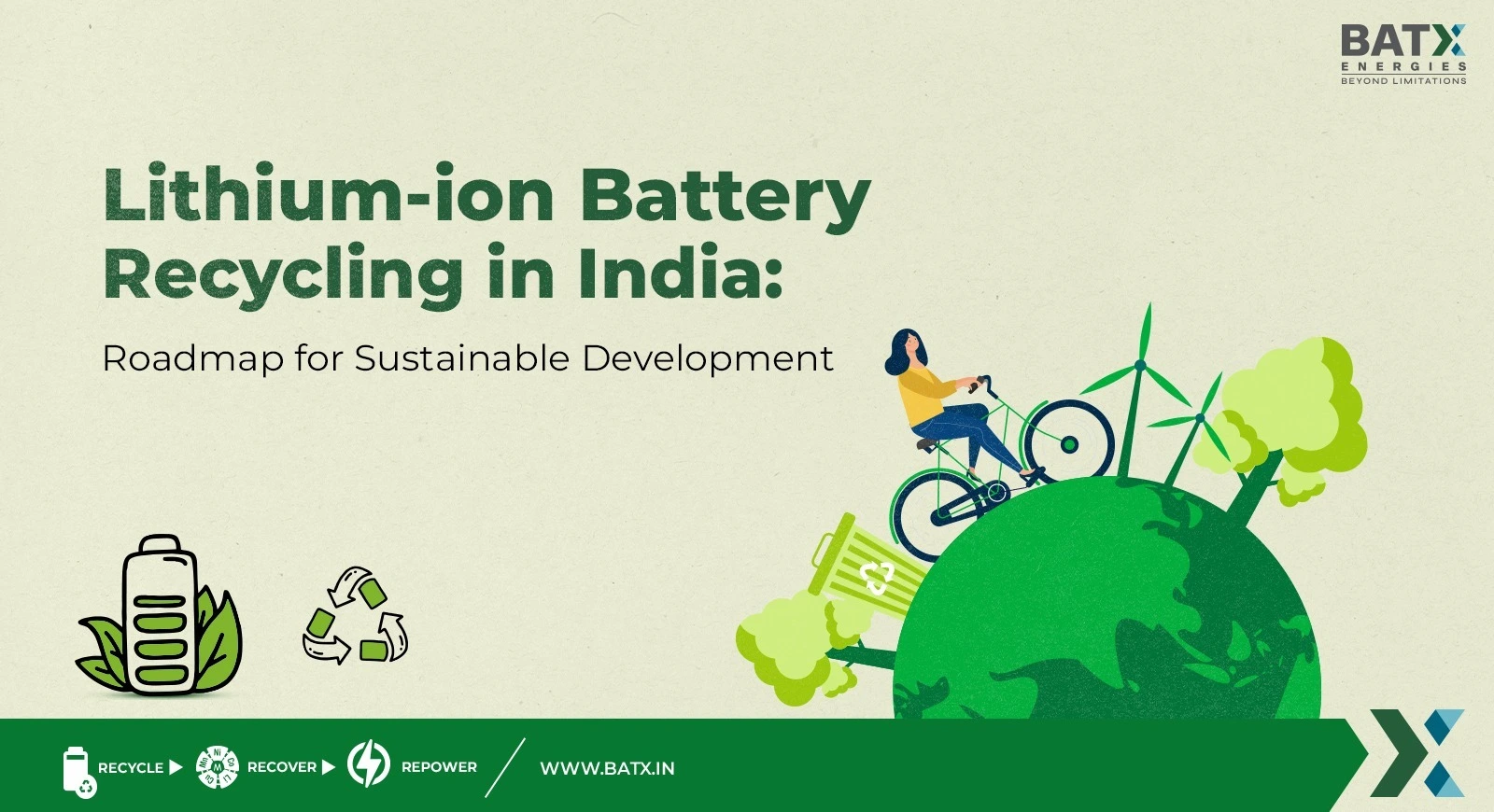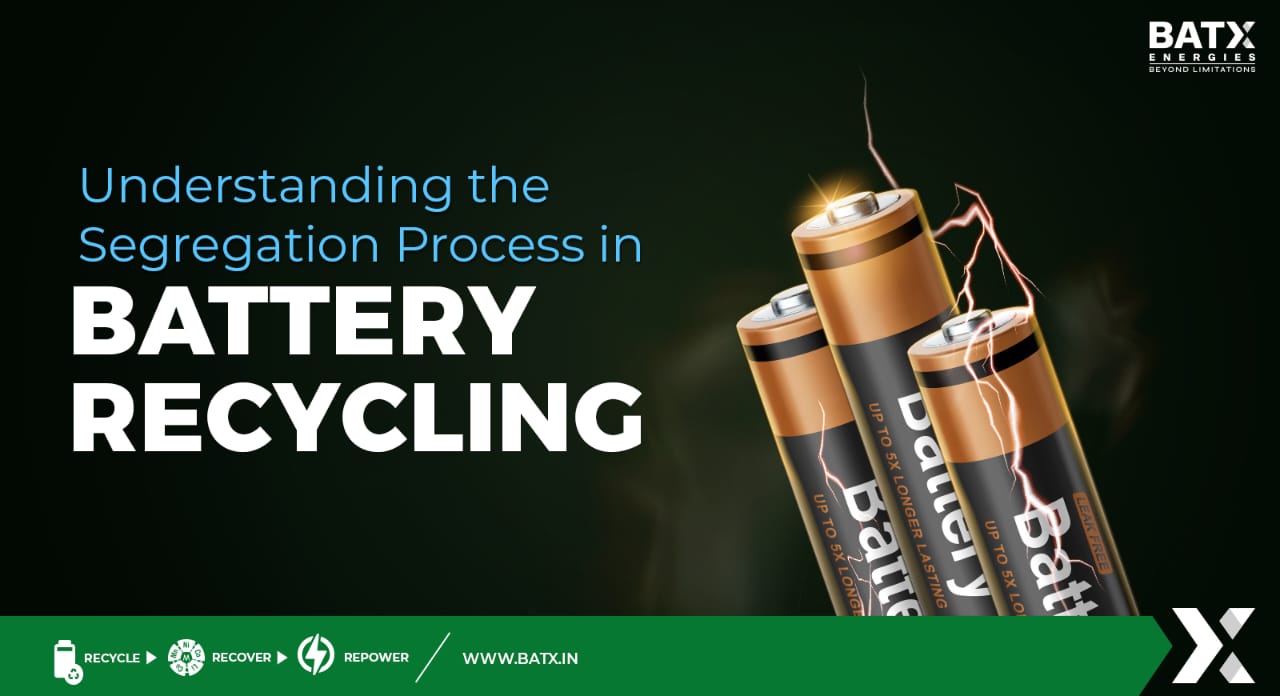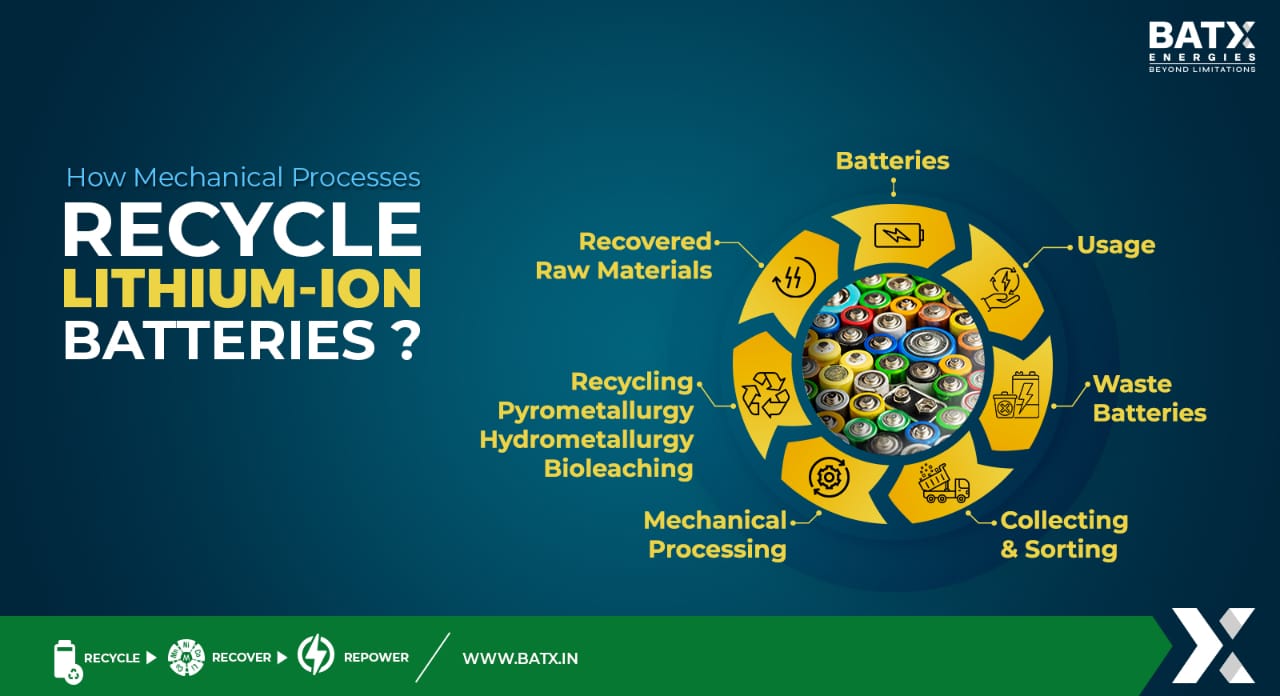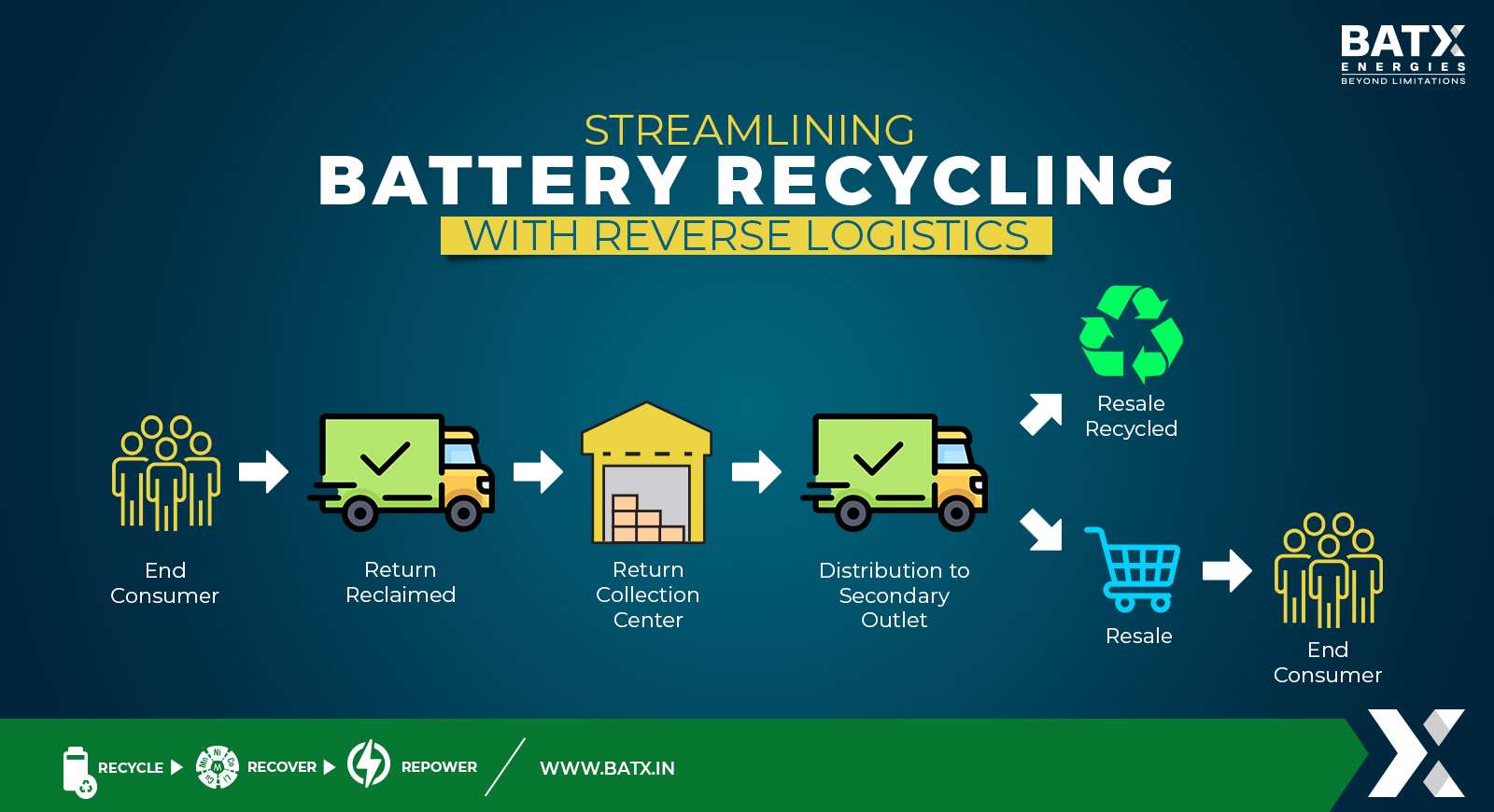Lithium-ion batteries have revolutionized portable electronics and are crucial for clean energy and electric mobility. The growing demand for these batteries necessitates sustainable and efficient recycling. In India, a rapidly developing economy with a booming electric vehicle market, unlocking the potential of lithium-ion battery recycling is essential for sustainable development and environmental preservation. This blog examines the importance of recycling, India’s current landscape, and outlines a smart roadmap to maximize its potential for sustainable growth.
| Table of contents The Current Landscape in India Lithium-ion Battery Recycling in India: Roadmap for Sustainable Development
|
The Current Landscape in India
India has undoubtedly made impressive progress in the realms of renewable energy and electric mobility, demonstrating its commitment to embracing cleaner forms of transportation. Nevertheless, the recycling infrastructure pertaining to lithium-ion batteries remains in its nascent stages within the country. Tragically, many discarded batteries are relegated to landfills or fall into the hands of informal recycling units that employ hazardous techniques, engendering environmental contamination and squandering valuable resources.
Lithium-ion Battery Recycling in India: Roadmap for Sustainable Development
Policy and Regulatory Framework
The first step is to establish a comprehensive policy and regulatory framework that incentivizes and regulates lithium-ion battery recycling. This framework should include guidelines for the collection, storage, transportation, and processing of batteries, as well as mechanisms for monitoring and enforcing compliance.
Awareness and Education
Creating awareness among consumers, industries, and stakeholders about the importance of battery recycling is crucial. Education campaigns can promote responsible battery disposal and inform about the benefits of recycling. Collaboration with educational institutions, NGOs, and industry associations can play a vital role in driving this awareness.
Collection Infrastructure
Building a robust collection infrastructure is key to effective battery recycling. Establishing collection centers at various locations, including retail outlets, electric vehicle charging stations, and recycling centers, can facilitate the convenient drop-off of used batteries. Implementing a deposit-refund system can also incentivize consumers to return their batteries for recycling.
Battery Sorting and Pre-processing
After collection, batteries need to be sorted and pre-processed to remove external components and separate different chemistries. Automated sorting technologies can streamline this process, enhancing efficiency and reducing costs.
Recycling Technologies
Developing advanced recycling technologies is essential for maximizing resource recovery. Technologies such as hydrometallurgical and pyrometallurgical processes can recover valuable metals like lithium, cobalt, nickel, and manganese from battery cells. Investing in research and development in this area will drive innovation and improve recycling efficiency.
Battery Life Extension and Second-Life Applications
Before recycling, exploring opportunities for battery life extension and second-life applications can be beneficial. Batteries that no longer meet the performance requirements for EVs can still be repurposed for stationary energy storage or other applications, reducing the demand for new batteries and extending their functional lifespan.
Collaboration and Partnerships
Collaboration between various stakeholders is crucial for the success of a lithium-ion battery recycling ecosystem. Government bodies, battery manufacturers, recyclers, researchers, and NGOs need to work together to establish a coordinated and efficient system. Public-private partnerships can drive investment, knowledge-sharing, and innovation in this field.
Conclusion
India’s journey towards sustainable development and the widespread adoption of electric mobility highlights the critical importance of unlocking the potential of lithium-ion battery recycling. To achieve this, several key strategies must be prioritized, including raising awareness, strengthening infrastructure, supporting research and development, and establishing a circular economy opportunities of Battery recycling. By embracing these initiatives, India can effectively harness the power of battery recycling for sustainable growth, while minimizing environmental impact and maximizing resource utilization. Through the collective efforts of individuals, businesses, and the government, India can pave the way for a greener and cleaner future, ensuring a harmonious balance between progress and the preservation of our planet.



